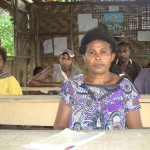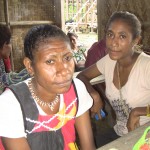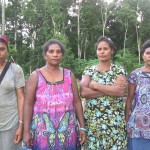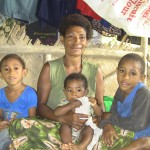From the Field: Morobe
Media training to address mining and development issues is underway in communities living along the lower Watut River in the Morobe Province, Papua New Guinea.
Charles Roche & Howard Sindana report.
Under cloudy skies and intermittent phone reception, a crowd of thirty people from the remote village of Chiatz squeezed into a tiny room to begin training in photography, video, media and social media storytelling.
Over two weeks in December the Mineral Policy Institute (MPI) is working with and assisting communities on the lower Watut River in Morobe Province, Papua New Guinea to build on our ongoing work there and respond to requests from communities, keen to determine the their own future.
Initially, the training will begin with the basics of media and citizen journalism, but it will evolve and change as it moves throughout different communities. Currently, there is a strong emphasis on providing training for women for the twitter-based Watut Meri Tok (Watut Women Talking) project.
Organised and empowered communities will have a much better capacity to engage with and respond to the existing and future impacts from the Hidden Valley and Wafi-Golpu mines. Using mobile phones to communicate with each other and the outside world will ensure on-the-ground information is shared widely about the issues affecting Watut communities.
Many attending the workshop have already been using Facebook, but were keen to learn more about Twitter and other platforms for information exchange. A community attendee named Jacinta, said “we say thank you to MPI in Australia to help us learn how to write community stories and use mobile phones.”
From Chiatz the training will move to Uref and Pekumbe.
For those wanting more detail on the issues and our work in the Morobe Province, see the dedicated website at www.watutriver.com



